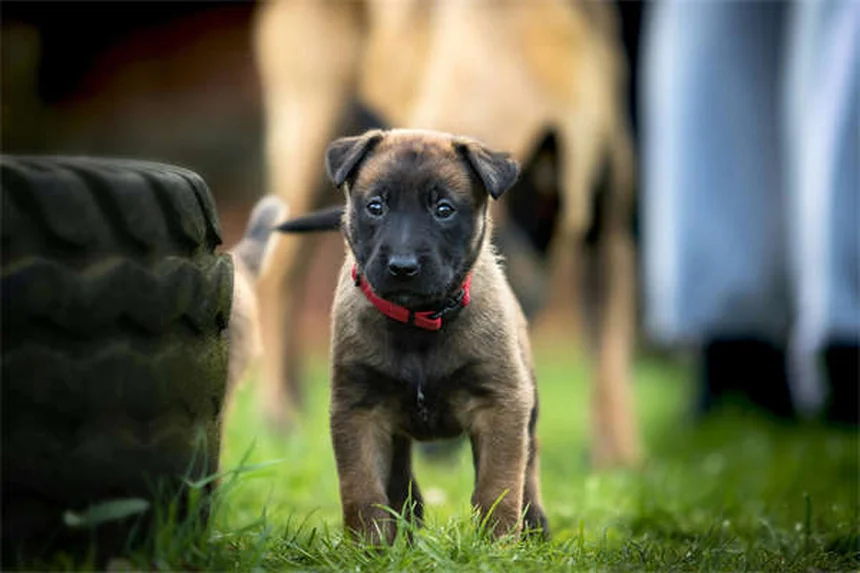Why is my guinea pig drooling and losing weight? The answer is simple: your furry friend likely has guinea pig dental problems like malocclusion. We see this all the time - those constantly growing teeth can cause serious issues if they're not wearing down properly. Here's the deal: guinea pigs' teeth grow about 1.5-2mm every week (that's faster than kids outgrow shoes!), and when they don't align right, it leads to painful chewing, drooling (we call it slobbers), and weight loss. The good news? With proper care from an exotic vet and some diet changes, most dental issues can be managed successfully. Let me walk you through exactly what to look for and how to help your piggy get back to happy munching!
E.g. :Chronic Vomiting in Cats: 7 Warning Signs You Should Never Ignore
- 1、Malocclusion and Other Dental Diseases in Guinea Pigs
- 2、Beyond the Basics: Understanding Guinea Pig Dental Health
- 3、FAQs
Malocclusion and Other Dental Diseases in Guinea Pigs
Hey there fellow guinea pig lovers! Let's talk about something super important - your furry friend's dental health. Did you know guinea pigs' teeth never stop growing? That's right, just like how your hair keeps growing (though hopefully not as fast as mine after skipping a haircut for months!).
Common Dental Problems
Malocclusion is the big word we use when teeth don't line up right. Imagine trying to eat a sandwich with your top and bottom teeth not matching - sounds frustrating, right? That's exactly how your guinea pig feels!
Another issue is slobbers, which isn't as cute as it sounds. When teeth overgrow, your pet can't chew properly and ends up drooling like a leaky faucet. Not fun for anyone!
Spotting the Signs
How can you tell if your little buddy has dental trouble? Look for these red flags:
- Food falling out while eating (like a messy toddler)
- Weight loss (their jeans get loose too!)
- Bleeding or swelling in the mouth
- Excessive drooling (more than usual guinea pig slobber)
Ever notice your piggy turning down their favorite treats? That's like me saying no to pizza - something's definitely wrong! Don't wait to call the vet if you see these symptoms.
 Photos provided by pixabay
Photos provided by pixabay
Why Dental Problems Happen
Here's the scoop on causes:
| Cause | How It Happens | Prevention Tip |
|---|---|---|
| Genetics | Born with misaligned jaws | Choose breeders carefully |
| Injury | Falls or chewing hard objects | Guinea pig-proof their space |
| Diet | Lack of vitamin C or minerals | Feed balanced meals |
Did you know guinea pigs can't make their own vitamin C? That's why they need our help to get enough - just like how I need my morning coffee to function!
Getting the Right Diagnosis
When you visit the vet (which you should do regularly, just like your annual physical), they'll:
- Do a full mouth exam (no tiny dentist chair needed!)
- Check tooth alignment
- Ask about diet history
Pro tip: Keep a food diary for your piggy. It helps the vet spot nutritional gaps faster than I can spot a donut shop!
Treatment Options
What happens if treatment is needed? Here's the lowdown:
For overgrown teeth, the vet might file them down. Think of it like getting a manicure, but for teeth! If the problem keeps coming back, your piggy might need monthly dental checkups - just like how I need monthly haircuts to keep my wild curls under control.
Sometimes supplements are prescribed. Calcium and vitamin C are common ones. It's like giving your piggy a daily multivitamin!
 Photos provided by pixabay
Photos provided by pixabay
Why Dental Problems Happen
Want to keep those teeth in tip-top shape? Here's how:
- Provide unlimited hay (their natural toothbrush!)
- Offer vitamin C-rich veggies daily
- Include chew toys (but nothing too hard)
Remember, prevention is easier than treatment. It's much simpler to eat healthy than to go on a diet, right? Same goes for your guinea pig!
When to Seek Help
Not sure if it's time for a vet visit? Ask yourself: "Would I wait this long if it were my toothache?" If the answer is no, pick up the phone!
Seriously though, guinea pigs hide pain well (tougher than most of us at the dentist!). By the time they show discomfort, the problem might be serious. Better safe than sorry!
Long-Term Management
For chronic dental issues, you'll become partners with your vet. Regular checkups and possible tooth trims might become routine. Think of it like getting braces adjusted - annoying but necessary!
The good news? With proper care, most dental problems are manageable. Your piggy can still live their best life, full of veggies and zoomies!
 Photos provided by pixabay
Photos provided by pixabay
Why Dental Problems Happen
Let's talk food - the foundation of good dental health:
Do feed:- Timothy hay (should make up 80% of diet)- Leafy greens (romaine, kale, parsley)- Vitamin C-rich veggies (bell peppers are great!)
Don't feed:- Too many pellets (they don't wear down teeth)- Sugary fruits (save as rare treats)- Hard seeds or nuts (can damage teeth)
Want an easy rule? If it's good for your teeth, it's probably good for your guinea pig's too (except toothpaste - definitely don't share that!).
Fun Dental Facts
Did you know guinea pigs have 20 teeth? That's more than human babies but less than adult humans! Their teeth grow about 1.5-2mm per week - faster than my kids outgrow shoes!
Here's something wild - their teeth have open roots, meaning they grow continuously. That's why proper wear is so crucial. Nature's way of making sure they always have tools for munching!
Creating a Dental-Friendly Home
Set up your piggy for success with these habitat tips:
1. Always keep fresh hay available in multiple spots2. Use ceramic food dishes (they can't chew through them)3. Provide safe wood chews (applewood is great)4. Avoid wire-bottom cages (hard on feet and teeth)
Think of it like setting up your dream kitchen - everything they need within reach!
Emergency Situations
When is it a true dental emergency? "Is my guinea pig in immediate danger?" If they stop eating entirely, that's a red alert. Guinea pigs can develop serious digestive issues if they don't eat for even 12 hours.
Other emergency signs include:- Bleeding that won't stop- Visible broken teeth- Swelling that affects breathing
In these cases, don't wait - get to an emergency vet faster than I run to the ice cream truck!
The Cost of Dental Care
Let's be real - vet bills add up. Here's a rough estimate:
| Service | Average Cost |
|---|---|
| Initial exam | $50-$100 |
| Tooth trimming | $75-$200 |
| X-rays | $100-$300 |
Pet insurance can help, or you might set aside a "piggy health fund." Either way, it's worth it to keep those teeth healthy!
Final Thoughts
Caring for guinea pig teeth isn't hard when you know what to do. Regular checkups, proper diet, and watching for warning signs will keep your furry friend happy and healthy for years to come!
Now go give your piggy some extra veggies (the dental-approved kind, of course) and a gentle chin scratch from me!
Beyond the Basics: Understanding Guinea Pig Dental Health
The Hidden Impact of Dental Issues
You might think dental problems just affect eating, but there's more to the story. When guinea pigs can't chew properly, it starts a domino effect throughout their whole body. Their digestive system depends on properly ground food - imagine trying to digest whole carrots without chewing them first!
Here's what happens internally: Undigested food moves through their system too quickly, meaning they don't absorb enough nutrients. This can lead to weight loss even if they're eating normally. Their gut bacteria get out of balance too, which affects everything from immunity to mood. Ever felt cranky when you're hungry? Your guinea pig feels that times ten when their digestion isn't working right!
Alternative Chewing Options
While hay is the gold standard, variety keeps things interesting. Have you tried these chewable options?
Willow branches are nature's toothbrushes - soft enough not to damage teeth but great for wearing them down. Just make sure they're pesticide-free! Cardboard tubes from toilet paper or paper towels make excellent chew toys too. My guinea pigs go crazy for them - it's like their version of unwrapping presents!
Here's a fun experiment: Try weaving hay through the bars of their cage. It encourages natural foraging behavior while promoting dental wear. Think of it like a vending machine that's actually good for their teeth!
The Emotional Side of Dental Pain
We often overlook how dental issues affect guinea pigs emotionally. These social creatures can become withdrawn when in pain. You might notice:
- Less excited wheeking at treat time
- Reluctance to interact with cage mates
- Decreased interest in exploring during floor time
I've seen guinea pigs who stopped "popcorning" (those happy little jumps they do) because of dental discomfort. It's heartbreaking - like watching a kid who's too tired to play. That's why catching problems early makes such a difference in their quality of life!
Seasonal Considerations
Did you know dental care needs change with the seasons? In winter when fresh grass is scarce, hay becomes even more crucial. I like to stock up on different hay varieties - it's like offering a menu instead of the same meal every day!
Summer brings its own challenges. Heat can make guinea pigs drink more water, which affects how they chew. Softer, water-rich veggies help balance this out. My crew goes wild for chilled cucumber slices on hot days - it's their version of an ice cream treat!
Dental Health Across Life Stages
Guinea pigs have different dental needs as they age. Here's what changes:
| Age | Special Considerations | Recommended Foods |
|---|---|---|
| Babies (0-4 months) | Developing jaw strength | Alfalfa hay for extra calcium |
| Adults (4 months-5 years) | Maintaining tooth wear | Timothy hay + varied veggies |
| Seniors (5+ years) | Potential for slower tooth growth | Softer hay + finely chopped veggies |
Ever noticed how senior guinea pigs might need their veggies cut smaller? Their teeth might not be as sharp as they once were - kind of like how my grandma prefers her steak well-done these days!
The Science Behind Those Teeth
Guinea pig teeth are engineering marvels! Their incisors have a hard enamel layer on the front but softer dentin behind. This creates a natural chisel edge as they wear down. It's like having self-sharpening knives in their mouth - way cooler than my kitchen knives that go dull immediately!
The molars have an equally clever design. Their grinding surfaces develop natural ridges that help break down tough plant fibers. When these wear unevenly due to malocclusion, it's like trying to use a blender with broken blades - nothing gets properly processed!
Hand-Feeding Techniques
Sometimes you need to hand-feed a guinea pig with dental issues. Here's how to do it without stress:
First, make a "hay smoothie" by soaking pellets in water. Use a syringe without the needle to offer small amounts. Go slowly - it's like teaching someone to drink from a straw for the first time. I've found most guinea pigs catch on quickly, especially if you use their favorite flavor!
For longer-term hand-feeding, try making little hay "cakes" by pressing moistened hay into small molds. They're easier to grip than loose strands. My pigs think they're getting special treats - little do they know it's dental therapy!
Common Myths Debunked
Let's clear up some misinformation floating around:
Myth: Guinea pigs can wear down teeth on salt licks. Truth: These do nothing for dental health and can actually cause kidney problems. It's like thinking chewing gum counts as brushing your teeth!
Myth: Wooden chew toys replace hay. Truth: While helpful supplements, nothing replicates hay's fiber content and texture. That's why it should always make up most of their diet. Imagine trying to live on vitamin gummies instead of real food!
When Prevention Fails
Even with perfect care, some guinea pigs develop dental issues. Genetics play a huge role - just like some people need braces regardless of how well they brush. The important thing is catching problems early through regular vet checks.
I've cared for guinea pigs with chronic dental issues who lived happy, full lives with proper management. It takes commitment, but seeing them thrive makes it worthwhile. They adapt amazingly well - much better than I do when I have a toothache!
Creating a Dental Care Routine
Consistency is key for dental health. Try incorporating these habits:
- Morning hay refresh (like making your bed - do it first thing!)
- Daily veggie check (are they eating normally?)
- Weekly weight monitoring (early warning system)
- Monthly tooth inspections (look for uneven wear)
It sounds like a lot, but once it becomes routine, it's as natural as brushing your own teeth. Okay, maybe more natural than flossing - I'll admit I sometimes skip that one!
The Bigger Picture
Dental health connects to overall wellbeing in ways we're still discovering. Recent studies suggest proper chewing may even affect cognitive function in aging guinea pigs. Who knew those little teeth did so much beyond munching veggies?
Next time you hear your guinea pig happily grinding away on some hay, take a moment to appreciate that healthy sound. It's the sound of a well-cared-for pet enjoying life to the fullest - and that's what being a great guinea pig parent is all about!
E.g. :Guinea Pig Dental Disease - Signs, Causes & Treatment
FAQs
Q: What are the first signs of dental problems in guinea pigs?
A: The first signs of guinea pig dental issues are often subtle but important to catch early. Watch for food dropping from their mouth while eating - it's like when a toddler makes a mess with their food. You might also notice weight loss (their little belly getting smaller), decreased appetite (turning down favorite treats), or excessive drooling (more than their usual cute slobber). Some guinea pigs will paw at their mouth or have wet fur around their chin from constant drooling. Pro tip: Check their front teeth weekly - they should meet evenly and not be overgrown. If you see any of these warning signs, don't wait - schedule a vet visit ASAP because dental problems can quickly become serious for these little guys.
Q: How often do guinea pigs need their teeth trimmed?
A: Most healthy guinea pigs never need their teeth trimmed if they're eating the right diet! Their teeth should wear down naturally with constant chewing on hay. However, if your piggy has malocclusion (misaligned teeth), they might need trims every 4-6 weeks. Here's what we've seen in our practice: Some severe cases require monthly visits, while others might only need occasional trims. The back teeth (molars) often cause more problems than the visible front teeth. Your exotic vet will create a personalized schedule based on your guinea pig's specific needs. Remember, prevention is key - unlimited timothy hay is nature's best toothbrush!
Q: Can guinea pig dental problems be cured permanently?
A: The truth is, malocclusion can't usually be "cured" but it can be well-managed with proper care. If the misalignment is genetic, your guinea pig will likely need lifelong dental care. However, if it's caused by injury or nutritional deficiency (like lack of vitamin C), correcting those issues can prevent further problems. Good news: With regular vet checkups, proper tooth trims when needed, and an excellent diet, most guinea pigs with dental issues can live happy, normal lives. We've had patients who've done great for years with monthly dental maintenance. The key is catching problems early and staying consistent with care - just like with our own dental health!
Q: What foods help prevent guinea pig dental disease?
A: The best diet for preventing guinea pig dental problems is simple: unlimited timothy hay should make up 80% of their food. The constant chewing action wears down teeth naturally. Add vitamin C-rich veggies daily (red bell peppers are our top pick) since guinea pigs can't make their own vitamin C. Include leafy greens like romaine and parsley for variety. Avoid these common mistakes: Too many pellets (they don't wear teeth down), sugary fruits (save as rare treats), and hard foods that could crack teeth. Think of it like this - if you wouldn't give it to a toddler learning to chew, it's probably not great for your guinea pig's teeth either!
Q: How much does guinea pig dental treatment cost?
A: Guinea pig dental care costs vary, but here's a realistic breakdown from our experience: An initial exam typically runs $50-$100. Basic tooth trims cost $75-$200 depending on complexity. If your piggy needs x-rays (common for checking those hidden back teeth), expect $100-$300. Emergency visits for severe dental issues can cost $200-$500 or more. Money-saving tip: Pet insurance for exotic pets is available and can help offset costs, or you might set aside $20-$50 monthly in a "piggy health fund." While it's not cheap, proper dental care prevents much more expensive (and painful) problems down the road. Your furry friend's health is worth every penny!

